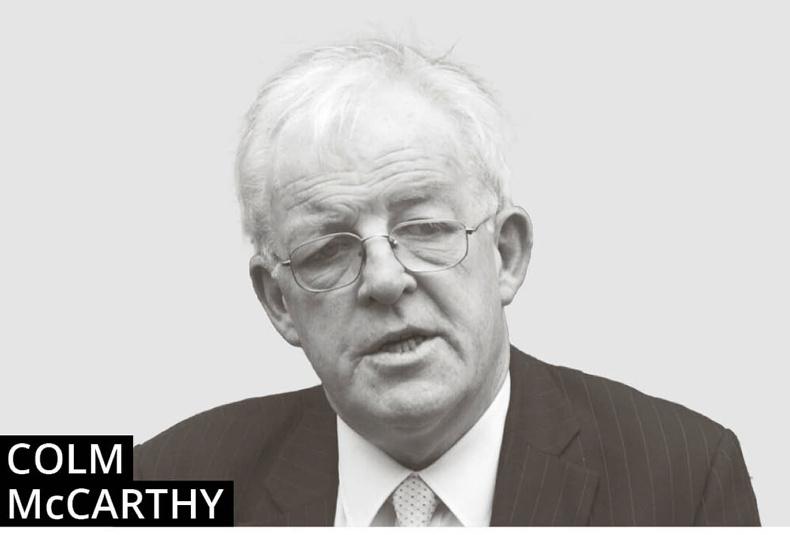Only a few of the budget measures can be deemed a surprise: the formula (small expenditure increases, small tax reliefs) is a repeat of the previous few budgets and the overall financial position precludes anything different.
So long as the economy continues to expand, the formula will be repeated, whatever government is in power. If the economy falters, as at some stage it will, the hunt will be on for somebody to blame, since the expectation has been recreated that budgets deliver only good news.
Some of the budget’s omissions were more interesting than the measures it contained. The hotel and hospitality industry has enjoyed a stellar recovery these last few years and not just in Dublin. The reduced 9% VAT rate was introduced in 2011 when the industry was on its knees and a return to 13.5% was widely anticipated. The full rate is 23%, so the 9% rate is a super-concession.
It is fair to ask the minister what level of recovery in the industry he needs to see before the VAT on expensive meals and flash hotels is returned to the concessionary 13.5% rate charged on many everyday necessities.
The help-to-buy scheme for house purchasers has been retained despite concerns that it has helped fuel the recent run-up in prices. The minister relied on the conclusion of a consultant’s report that no measurable damage has yet been done.
Measures which stimulate housing demand, without enhancing supply, are a peculiar response to current Irish conditions, especially in the dysfunctional Dublin market and it is difficult to imagine how they could have any beneficial effect.
Ireland taxes diesel fuel in road vehicles at a lower rate than petrol, even though health experts believe that the emissions from diesel are more hazardous. Here again an increase had been flagged but none was imposed.
Similarly with betting tax, only 1% in Ireland, the lowest rate in this part of the world as I argued in a submission to the Tax Strategy Group during the summer.
Opposition groups including Sinn Fein, the Labour Party and several independents had acknowledged the case for an increase, opposed naturally enough by bookmakers. There was no increase and a pattern begins to emerge.
The budget contained no bad news for any of the lobby groups – hoteliers, house-buyers, truck drivers and bookmakers can all relax for another year. There is a new excise on sugary drinks, a VAT hike for sunbeds and yet another increase in tobacco tax but that is the limit of the impositions on the general public.
When Irish government revenue collapsed in 2008 some of the blame was attached, quite correctly, to an excessive reliance on volatile tax headings, chief among them the stamp duty on property deals.
With the approval of the troika, the Government sought to broaden its revenue sources, relying instead on an annual residential property tax and a doomed attempt to introduce water charges.
For both residential and commercial property transactions, the stamp duty rates were reduced from the 9% level which had yielded an ephemeral exchequer bounty during the bubble.
The minister has now decided to raise the tax on commercial property deals to 6% from 2%. The justifications can hardly include the re-introduction of some badly-needed volatility into government revenue.
There will be a very important elucidation of the Government’s spending intentions when the new capital plan is published later this year, and the minister announced extra financial allocations in the budget speech. How exactly this money will be spent will not be clear until the capital plan is released.
One of the priorities mentioned is higher education, where there has been persistent lobbying for extra capital expenditure.
The utilisation of the existing capital stock in the Irish higher education sector has always been a source of wonderment. The universities, whose capital assets have cost numerous billions, typically close up shop before the end of May, with all hands drifting back again early in September.
If any other item of the public capital stock, say Dublin Airport or the motorway network, proposed to disappear from productive activity for the entire summer without a by-your-leave, there would be a public outcry, and certainly no question of a favourable mention in the budget speech.
There is no reason why these valuable capital assets could not be utilised more effectively, and there should be no question of extra buildings for colleges some of which use them for as little as 25 weeks per annum.
There appears to be a similarly profligate attitude to the use of capital in acute hospitals, where operating theatres and other costly facilities close down at weekends – they also got a favourable ministerial mention. The allocation of the capital budget will tell a lot about the economic credentials of this government.





SHARING OPTIONS